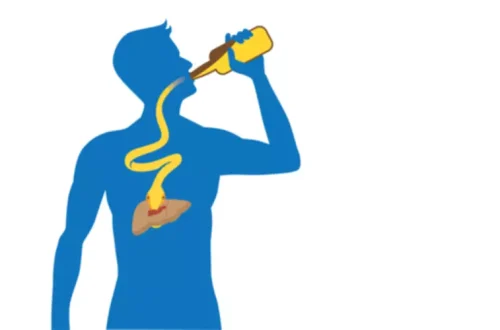
To qualify, operators must satisfy certain criteria, including https://ecosoberhouse.com/ ensuring that homes are run with fiscal transparency and that residents are supported in their efforts to recover from their addictions. Certified or uncertified, the sober homes have become a bone of contention in the Roxbury and Dorchester neighborhoods where most of the sober homes in Boston are located. The Askia Academy is a program for men with a dual diagnosis, also known as co-occurring disorders. Named for community activist Nate Askia, the program serves men in recovery for up to nine months. Askia Academy is a healing community providing comprehensive support to men to prepare for self-sufficiency and sustained recovery. Dimock’s CSS programs welcome individuals receiving methadone and/or suboxone as part of a medication-assisted treatment program, and women who are pregnant.
- Clients of Teras may also be involved in outpatient treatment while they develop a foundation in their recovery work, and apply to work positions.
- The program is licensed and funded by the Department of Public Health’s Bureau of Substance Abuse Services.
- In some cases, the letters also falsely stated the individual was a resident of RES, sober and participating in the recovery programming offered at the sober house.
- Our veteran’s sober home known as the United House for Veteran’s is dedicated to providing safe and supportive environment for veterans in recovery.
Hope
This project is supported by Grant No. 2020-AR-BX-0038 awarded by the Bureau of Justice Assistance. Points of view or opinions in this document are those of the author and do not necessarily represent the official position or policies of the U.S. Referrals may come from Trial Court staff, Defense Counsel, the District Attorney’s office, and community partners. While one set of vocal residents was able to avert the siting of a sober home, it’s clear operators are seeking more opportunities in the area. Tempers reached a boiling point earlier in July when Winthrop Street residents learned sober house roxbury ma that the new owner of 31 Winthrop Street, an entity called 41 LLC, was considering renting the $600,000 Second Empire style Victorian home to a sober home operator.

Search for Transitional Housing
As residents progress through the program, they can begin to apply for jobs and reintegrate back into the community. The length of this program will vary depending on the individual needs of each resident. Clinical Stabilization Services at Dimock provides intensive clinical services to address the complex needs of individuals in early recovery. The program supports men and women who have ongoing issues with substance use, mental health, and trauma by offering structure, comprehensive support, and, most importantly, hope. Dimock’s CSS programs create a “Healing Community,” using best practices including trauma-informed care, motivational interviewing, harm reduction, music, art, yoga, and other expressive therapies.

How can I find a halfway house or sober living home in Roxbury?
Individuals meet with a Recovery Support Navigator to determine eligibility and enroll in this program. NSCS offers referral services including substance use treatment, community services, MassHealth enrollment, prescribers for substance use and psychiatric treatment, transportation assistance, short-term rental assistance in certified sober house. NSCS was awarded the Project NORTH grant through the Massachusetts Trial Courts and Probation services at Lynn and Chelsea District Court.
See Tharros House on Chronical News Program

A sober living home creates fellowship and community that can help you get back to a life where you are happy and fulfilled. The proper support, combined with a safe environment and first hand know-how will guide you to experience a new way of being and behaving. A sober living environment reinforces honesty and integrity as it supports you on your journey to acquiring a great new lifestyle. Perry owned and operated Recovery Education Services (RES) Inc., a non-profit organization that runs a residential facility for men in recovery from alcohol and drug addiction in Roxbury. Devine Recovery Center is a peer-to-peer community center for individuals in recovery, age 18 and up.

See Tharros House on Channel 5’s Chronicle
Project NORTH is a $6 million dollar grant from the Department of Justice that was awarded to the Trial Court to expand access to behavioral health treatment for court users across the Commonwealth. Project NORTH provides voluntary court-based Recovery Support Navigation, short-term transportation assistance to relevant services, and short-term assistance with rent in a certified and participating sober house for eligible individuals. These services are available to court users and their families in Barnstable, Boston, Brockton, Chelsea, Fall River, Haverhill, Lawrence, Lowell, Lynn, New Bedford, Pittsfield, Quincy, Springfield, Taunton, and Worcester.

Among the 175 homes certified by MASH, 23 homes, with a total of 300 beds, are located in Boston. The association lists no sober homes in any of the city’s other 10 neighborhoods. On a once-quiet block of Ruthven Street in Roxbury, homeowner Audrey Day finds herself now sandwiched between sober homes.
- Each guest can expect a clean bed, sufficient clothing storage, HDTV w/ cable and free wifi in every room inside a clean, well maintained home cared for by the guests who stay there!
- The length of this program will vary depending on the individual needs of each resident.
- We provide opportunities for meaningful development of community and positive social connection through these experiences and more.
- Named for community activist Nate Askia, the program serves men in recovery for up to nine months.
- If you need assistance, please contact the Executive Office of the Trial Court.
The program also offers an Alumni group, which meets monthly providing peer-to-peer and relapse prevention support. Ruth Kelley Ummi’s House (RKUH) is a beacon of hope for previously incarcerated women navigating the path to recovery and family reunification. This family-centered sober-living program serves mothers with a dual diagnosis—substance use disorder and co-occurring mental health conditions—along with their children, providing a stable foundation for long-term healing. He also falsified letters he sent to various probation departments on behalf of numerous individuals, including some who were his legal clients and some who lived at RES.
Support Design and Implementation
If you need assistance, please contact the Executive Office of drug addiction treatment the Trial Court. Teras does not provide transportation, but you may have a car, and ubers are readily available. If you have many outside commitments, or are ready to return to work, Teras can be a good entry point directly from treatment. For others, after 1-6 months at Tharros, clients may choose to transition to Teras. Transitional housing is temporary housing for the working homeless population and is set up to transition their residents to permanent housing.
- All MASH-certified sober homes follow the National Alliance for Recovery Residences (NARR) standards and have been independently inspected.
- Beyond sober homes, Boston appears to bear much of the burden of the statewide opioid crisis.
- While one set of vocal residents was able to avert the siting of a sober home, it’s clear operators are seeking more opportunities in the area.
Transitional Housing and Sober Housing in Massachusetts: Find a Safe Place to Live and Recover
Residents are able to connect with NSCS outpatient providers for therapy or medication management. There are three to six groups daily and one to three clinical groups per day depending on the day of the week. Meridian House utilizes a 5-level system that promotes growth by encouraging accountability, responsibility and recovery. Cell phones and employment are permitted progressively as residents move through the 5-tiered level system. The Gavin Foundation operates more than a dozen programs independently or in collaboration with other agencies. We recognize that youth affected by drug and alcohol use face special challenges in building their recovery capacity.
